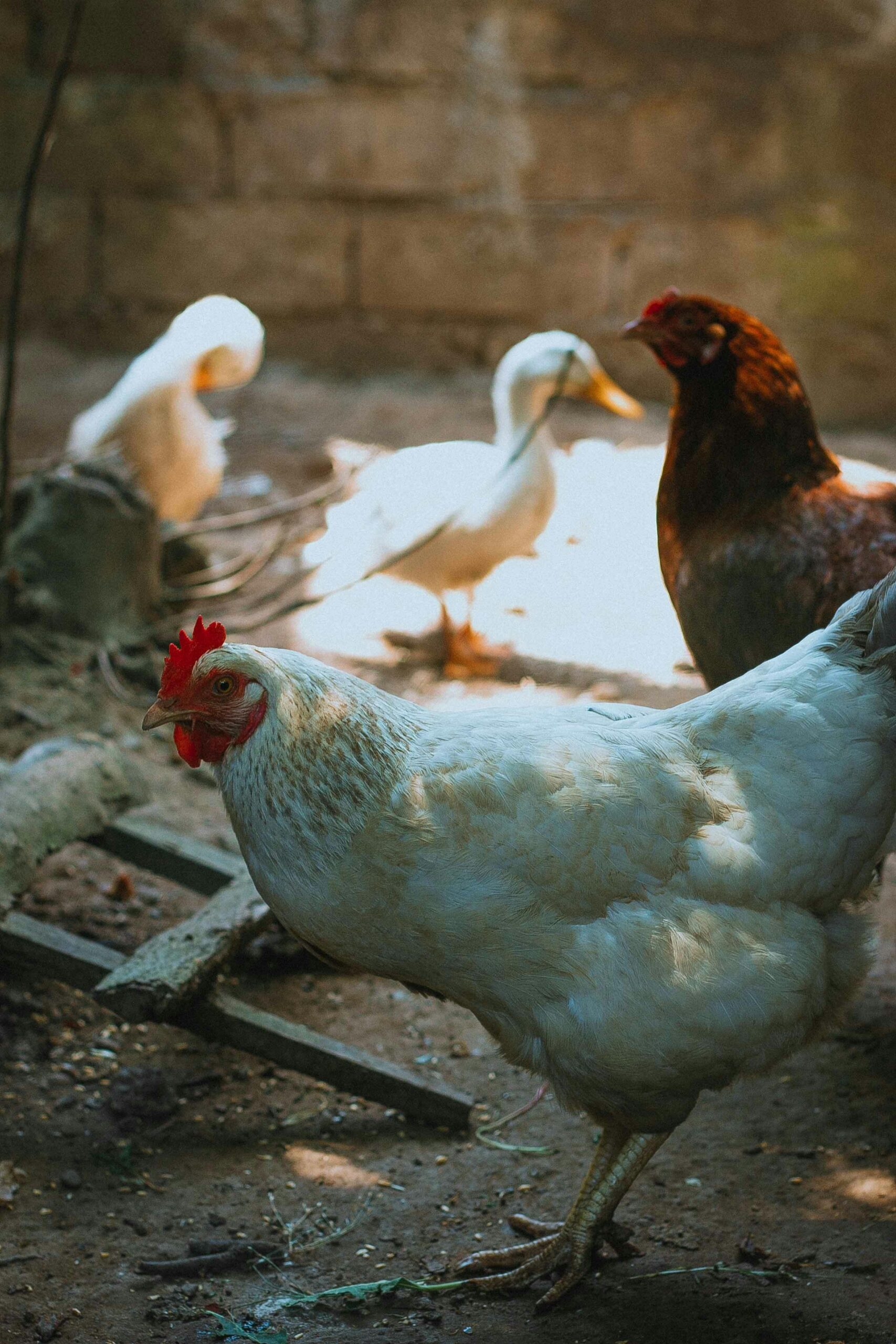If you’re considering raising poultry for fresh eggs, you may find yourself wondering – duck eggs or chicken eggs? While both are nutritious and delicious, they have distinct differences in taste, size, and even how the birds are raised. Choosing the right fit for your backyard depends on your goals, available space, and personal preferences.
Let’s break down the pros and cons of raising ducks and chickens for eggs, so you can decide which feathered friend is the best addition to your homestead.
1. Size and Nutritional Value
One of the biggest differences between duck and chicken eggs is their size and nutritional content.
Duck Eggs:
- Larger – Duck eggs are typically 30-50% larger than chicken eggs.
- Richer in Nutrients – Higher in protein, omega-3s, and healthy fats.
- Calorie-Dense – Contains more calories per egg, making them ideal for baking and cooking.
- Yolk Size – Duck eggs have a larger, creamier yolk, contributing to their rich flavor.
Chicken Eggs:
- Standard Size – Easier to portion for meals and recipes.
- Balanced Nutrition – Slightly lower in fat and cholesterol compared to duck eggs.
- Milder Taste – Chicken eggs have a familiar, lighter flavor.
- Widely Used – Most recipes are designed with chicken eggs in mind.
2. Taste and Cooking Differences
Duck eggs are often praised by chefs and bakers for their richer flavor and creamier texture, but they can be too strong for some people’s taste.
Duck Eggs:
- Richer Flavor – Ideal for pastries, custards, and cakes due to their higher fat content.
- Thicker Whites – Creates fluffier baked goods.
- Distinct Taste – Some describe duck eggs as having an earthier, gamier flavor.
Chicken Eggs:
- Mild and Versatile – Perfect for a wide range of dishes, from breakfast scrambles to delicate desserts.
- Consistency – Lighter and less intense flavor, making them a crowd-pleaser.
3. Egg Production and Laying Habits
How often your birds lay eggs can also influence your decision.
Duck Egg Production:
- 300-350 eggs per year (depending on breed).
- Ducks lay consistently, even during colder months or when daylight is reduced.
- Duck hens may lay anywhere, not always in nesting boxes, which can lead to daily egg hunts.
Chicken Egg Production:
- 250-300 eggs per year (depending on breed).
- Chickens lay more frequently in warmer months and may reduce laying in winter without supplemental light.
- Chickens reliably lay eggs in nesting boxes, making collection easier.
4. Care and Maintenance
Both ducks and chickens require proper housing, food, and protection from predators, but their care routines differ.
Duck Care:
- Water Requirements – Ducks need access to water for swimming and bathing, which can get messy.
- Hardier in Weather – Ducks are more cold-hardy and resilient in wet conditions.
- Foraging – Ducks naturally eat more pests, snails, and slugs in your garden.
Chicken Care:
- Coop Living – Chickens prefer to roost and need nesting boxes to lay eggs.
- Less Water-Dependent – Chickens drink water but don’t require bathing.
- Dust Bathing – Chickens keep clean by rolling in dust, helping to control parasites.
5. Space Requirements
Your available space can also dictate whether ducks or chickens are the better choice.
Ducks:
- Require more space for water and foraging.
- Less prone to damaging gardens but need space to roam.
- Recommended Space: 4-6 square feet per duck in the coop; 15+ square feet in the run.
Chickens:
- Content in smaller coops and runs but may scratch and damage gardens.
- Recommended Space: 3-4 square feet per chicken in the coop; 8-10 square feet in the run.
6. Health and Disease Resistance
Ducks are generally hardier and less prone to disease, making them a low-maintenance choice.
Duck Health:
- Less susceptible to parasites and respiratory issues.
- Strong immune systems, but their feet are prone to bumblefoot if not kept on soft ground.
Chicken Health:
- Chickens can be prone to mites, lice, and respiratory issues.
- Regular health checks and dust baths help prevent illness.
7. Which Should You Raise?
Choose Ducks If:
- You want larger, nutrient-rich eggs.
- You live in a wetter climate with space for water.
- You appreciate pest control and cold-weather resilience.
Choose Chickens If:
- You prefer mild-flavored eggs for daily use.
- You have limited space or prefer a more traditional poultry experience.
- You want a predictable egg-laying routine and ease of care.
8. Can You Raise Ducks and Chickens Together?
Yes! Many homesteaders successfully raise ducks and chickens in the same area. They complement each other well, with chickens scratching the ground and ducks controlling pests. Just ensure they have separate bathing areas and adequate coop space.
Conclusion
Whether you choose to raise ducks, chickens, or both, each offers unique benefits that can enhance your backyard and provide a steady supply of delicious eggs. Ducks provide larger, nutrient-dense eggs with robust flavors, while chickens are the go-to for reliable, mild-tasting eggs. Assess your space, lifestyle, and egg needs to find the perfect match for your homestead.
Call to Action:
Ready to start your poultry journey? Comment below with your experience or questions about raising ducks or chickens, and don’t forget to share this guide with fellow backyard farmers!




Leave a Reply